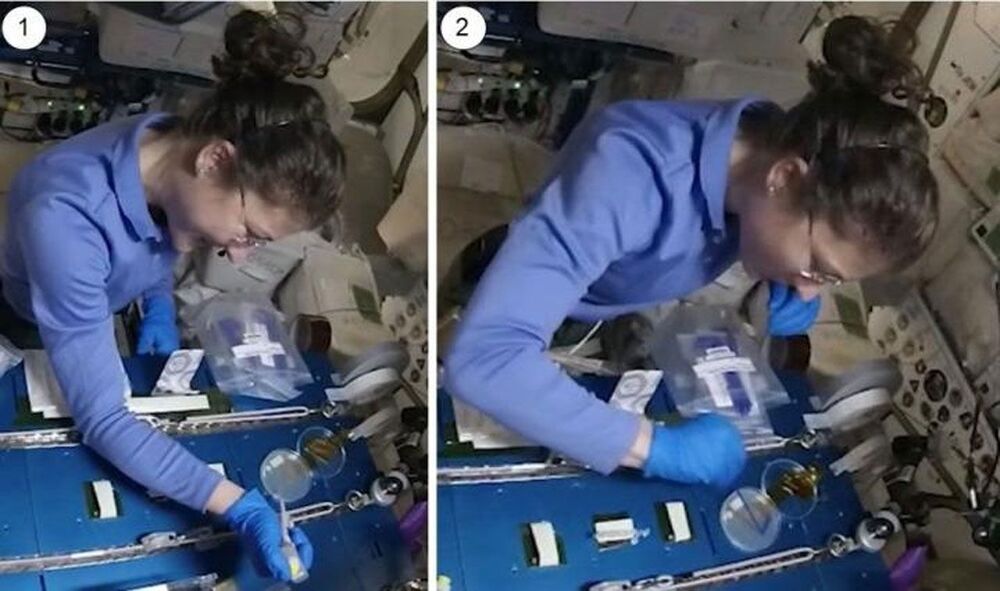Researchers aboard the ISS have announced the first successful use in space for a new technique for studying DNA repair in yeast. Astronauts aboard the space station have demonstrated a successful CRISPR/Cas9 genome editing method. An organism can suffer damaged DNA occurring during normal biological processes or as the result of environmental causes.
In both humans and animals, damaged DNA can lead to cancer. However, there are multiple natural strategies inside cells that allow damaged DNA to be repaired. NASA is working hard on studying DNA repair in space because astronauts traveling outside of the atmosphere have an increased risk of DNA damage due to ionizing radiation.
Until now, technological and safety obstacles have limited research into the issue. Now astronauts aboard the ISS have developed a new method for studying DNA repair in yeast cells that can be conducted completely in space. The process uses CRISPR/Cas9 genome editing technology to create precise damage in DNA strands to allow DNA repair mechanisms to be observed.
